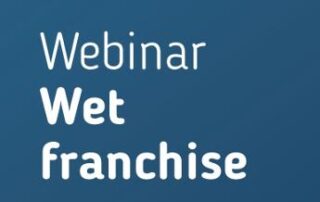Franchise agreement or employment contract?
“Franchise Agreement” is not a legal term. The law sees a franchise agreement as an ordinary agreement. A so-called unnamed agreement. This means that, provided that within the legal limits of, for example, competition law, people are allowed to agree on what they want. This is fundamentally different from the term “employment contract”. It is not determined by the parties, but by the legislator when an agreement must be regarded as an employment contract. The consequence of this is known. A wide range of legal rules of a social and fiscal nature are poured into the agreement and the parties are squeezed into an employment law straitjacket in the polder model. The employment contract is therefore a so-called named contract. According to the law, an agreement is in principle an employment contract if one has committed himself to perform personal work in an authority relationship and receives a remuneration for this. For that qualification, not only the (original) party intention, but also the actual performance of the agreement is important.
The boundary between employment contract and franchise agreement is increasingly becoming blurred. Work that used to be performed as an employee is now often carried out by means of a franchise agreement with “self-employed persons”. Common examples of this can be found at service providers and delivery companies, among others. Not only the tax authorities and UWV, but also disappointed franchisees can adopt a critical attitude towards these situations and afterwards, often successfully, state that what the parties had intended as a franchise agreement is in fact an employment contract. It goes without saying that the consequences of this can be significant. The franchisee is therefore wise to request a declaration of self-employment (VAR declaration) from the tax authorities in advance. The franchisor would be wise to set up his franchise agreement in such a way that it cannot be regarded as an employment contract and to have it tested in advance by the UWV and the tax authorities.
Ludwig & Van Dam franchise attorneys, franchise legal advice

Other messages
Ludwig & van Dam co-hosts webinar NFV Wet Franchise
Webinar 'Law Franchise' On October 28, 2022, Ludwig & ...
Can car dealers invoke the Franchise Act?
On 1 January 2021, the Franchise Act entered into ...
No formula change, but further development by the franchisor
The District Court of Maastricht ruled on 6 October 2022, ...
Know-how and the post-contractual competition prohibition
Has transferable know-how worthy of protection been transferred so that ...
Merged franchisor competes with proprietary franchisees
If a franchise organization is taken over, the intention ...
How does the Franchise Act protect novice franchisees?
Starting your own business is in almost all cases a ...






